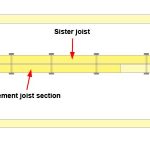Like any other trade, carpentry takes time and experience to learn. A full carpentry apprenticeship is three years, and the apprentice will usually work full time alongside the course. In most cases, this consists of one day at college and the remaining days working with an employer.
After your apprenticeship ends, you will continue to learn and refine your craft for years and even decades. With this in mind, it is definitely considered hard to become a truly exceptional carpenter.
With that said, between college and work, a new carpenter can be reasonably good by the end of an apprenticeship.

Whilst the learning from college is useful, the onsite training, is arguably much more valuable.
People who only do college without the work experience, have a significant disadvantage to someone that worked through their course. They actually get a different (lesser) qualification and to upgrade this, they need to present work evidence for a variety of projects.
On the other hand, someone who is entirely trained on site, would usually be just as good as the person with the college qualification. The main issue with not getting a qualification, is it can affect your employment prospects, as well as your rate of pay.
Obviously, the best route to becoming a carpenter is combining onsite training with the college education. Both other options create more obstacles and issues further down the line.
Actually learning carpentry through an apprenticeship is not that hard. It just takes time and patience. Once you have mastered the basics, you can start learning more complex jobs, and this will increase your experience.
What are the hardest things to learn in carpentry
The skill of carpentry is something you will develop over many years and even decades. Over time, you will become better with experience. If you speak with older carpenters, many will tell you, that you never stop learning.
In the early stages of learning, one of the most difficult things to get good at, is precision. The jobs carried out by a carpenter need to be very neat, and work should be carried out to the mm. You also need to pay close attention to things like plum, level and keeping everything square.
Even slight mistakes, can turn a perfect job into something that looks poorly done. Skills such as accurate measuring, skilful/straight cutting, and the ability to use tools like chisels and planes, all need to be learned and practiced to achieving this.
The other difficult skill for a carpenter to learn, is the ability to think outside of the box. Not every job is the same, which means you will constantly run into problems that you didn’t expect. This means critical thinking and problem solving are essential skills.
Often, you may need to completely change the way you do a job, in order to make something fit correctly and look good. This is something that does improve with experience, but it can be difficult for inexperienced carpenters, who try to stick to a textbook method.
Is carpentry physically hard as you learn
As well as being mentally hard to learn, it can also be physically hard. Carpenters do a lot of lifting and carrying, which means, carpentry can be hard on the body.
For an apprentice just getting started, this can be tough, as they are required to lift and carry tools constantly, as well as materials.
Being an apprentice, means you often get the less skilled jobs that the advanced carpenters don’t want to do. This means, you will usually be unloading all the tools at the beginning of the day.
This could include lots of toolboxes and power tools, as well as electric cables, transformers, workstations, and anything else that will be needed through the day.
Once the day is done, all of these tools need to go away again. As an apprentice, you can be pretty sure this will be part of your job.
Also, if a delivery shows up, you’re probably unloading all the materials with the labourers on site.
You will also be sweeping up, making brews, and anything else that the skilled carpenters need while they work. Then when you have free time, you will learn from the more experienced workers, and carry out simpler jobs that you already know how to do.
Overall, your early years as an apprentice carpenter will be hard physical work. In fact its quite common to see some impressive physical changes, as this hard work often translates into a fitter stronger body.
Conclusion
Carpentry is a hard skill to learn and it’s not for everyone. Carpenters should be good with math; they should have an interest in critical thinking and solving problems. As well as a steady hand and lots of patience.
Learning carpentry is a lifelong endeavour, meaning you will constantly be learning new things in different situations. You will also need to learn new skills and techniques as methods and tools advance over time.
Overall, carpentry can be a very rewarding career, and after you spend a considerable amount of time learning, you will have a skill for the rest of your life. This alone will make the hard work worth it.




